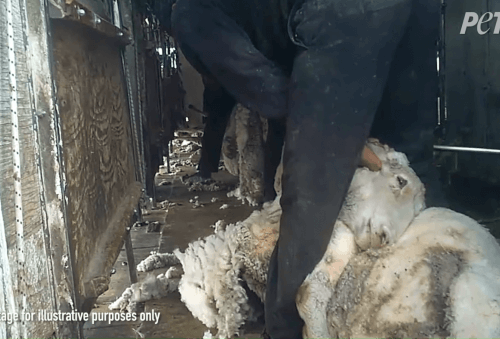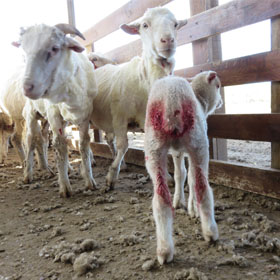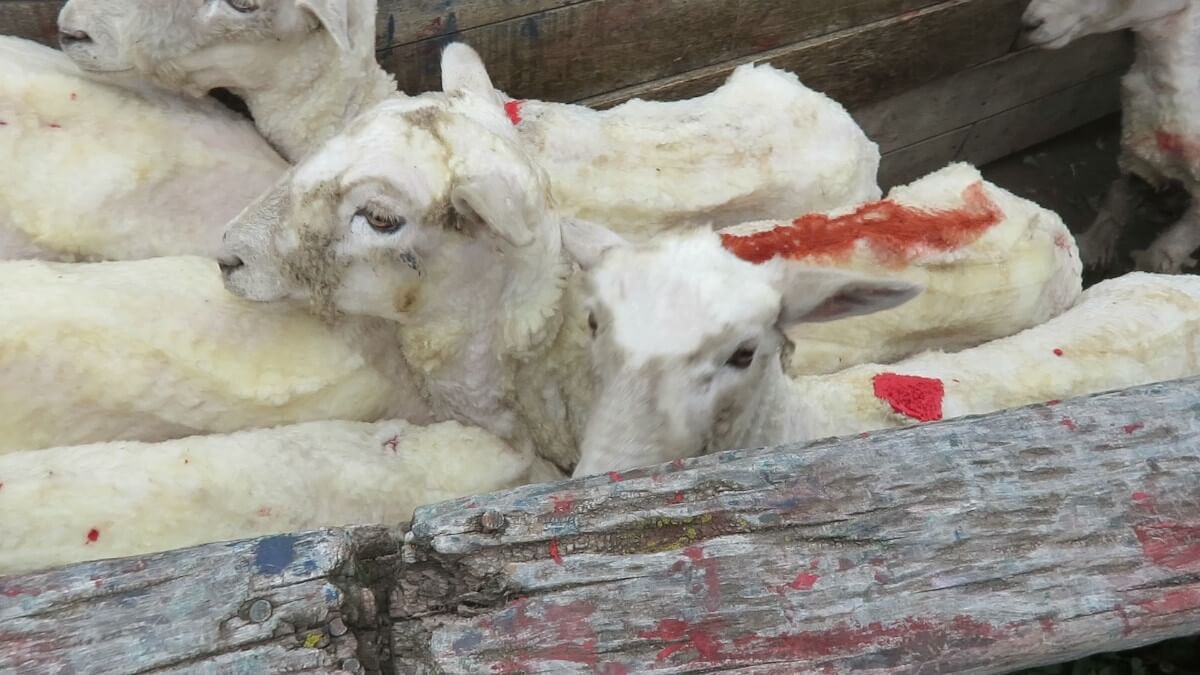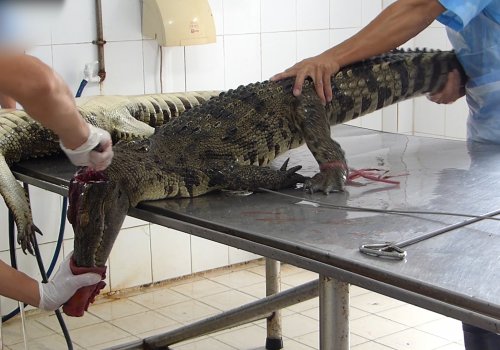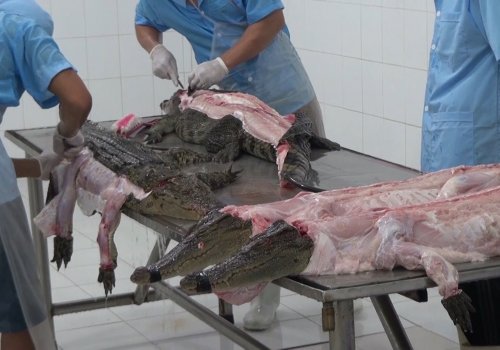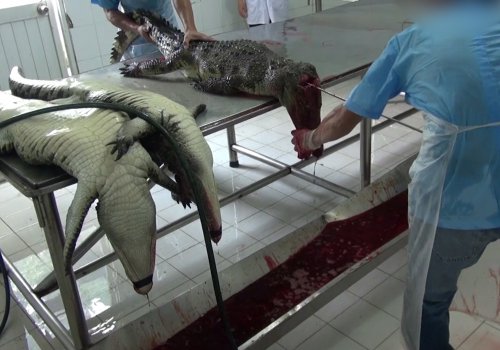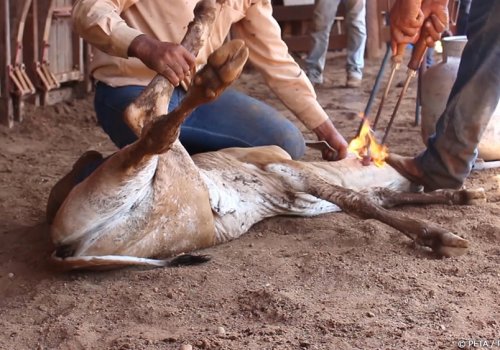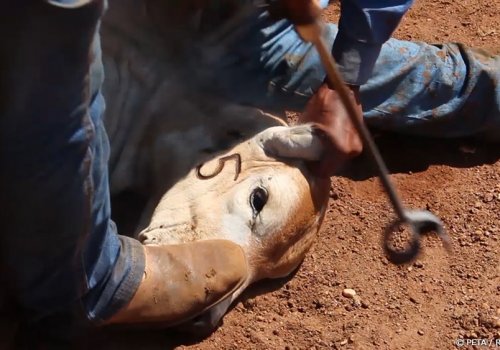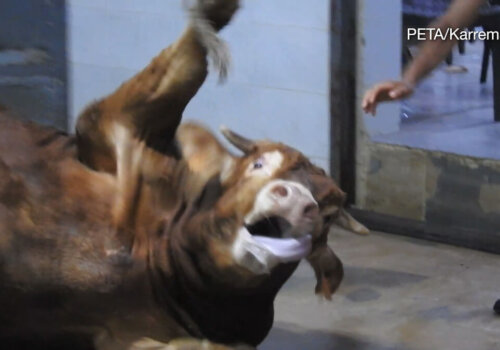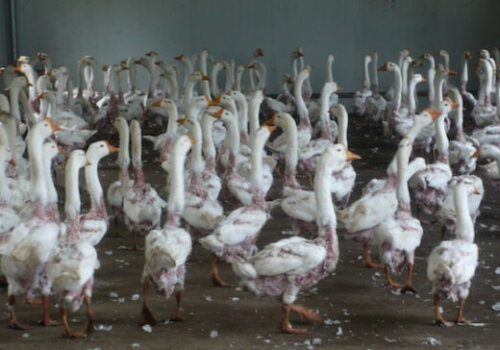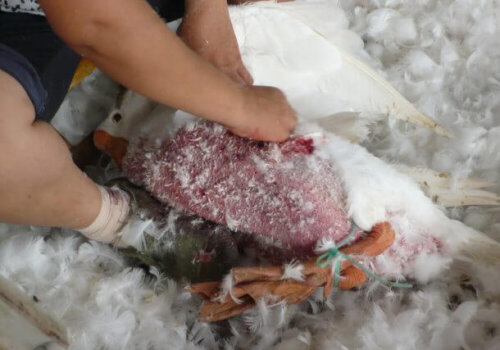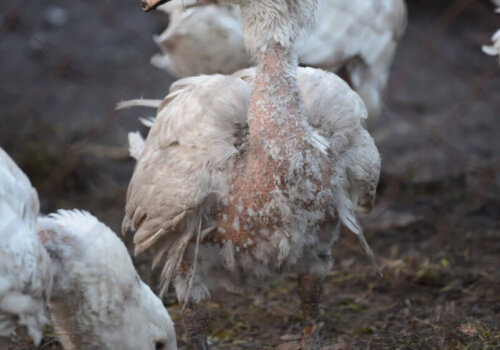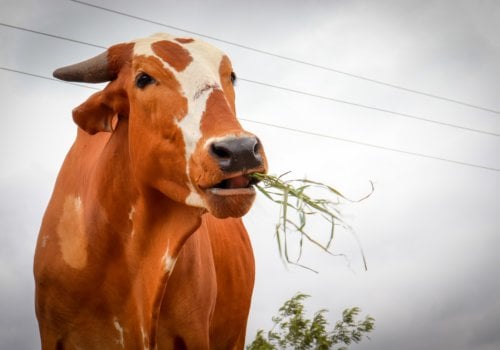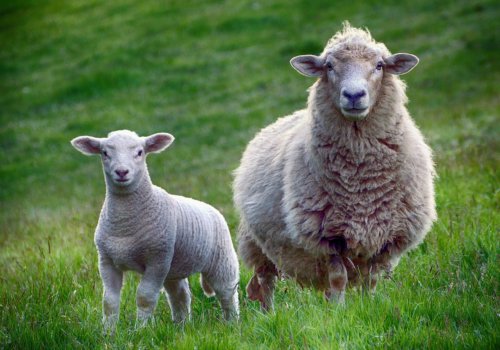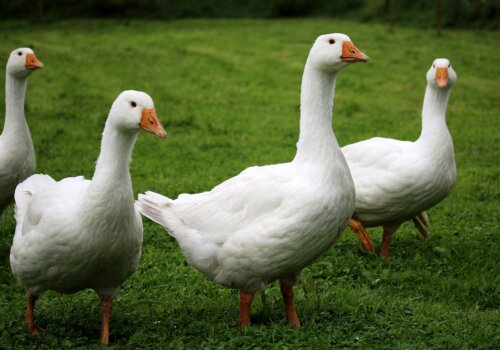Cynthia Nixon skewered toxic masculinity in the viral sensation “Be a Lady They Said”. That powerful video inspired PETA US to tackle the fashion industry’s rampant systemic speciesism in “Be a Sweater They Said”, created for New York Fashion Week and featuring PETA US Senior Vice President Lisa Lange.
It seems fitting that Nixon’s video – which calls out the objectification of women and the degrading standards that they’re told to aspire to – would be the catalyst for a video by PETA US, a primarily female-led organisation. And just as Nixon’s video reminds viewers that women don’t need to play by rules shaped by men in power, we’re urging everyone to cast off the fashion industry’s desire for consumers’ complicity and to acknowledge all animals’ right not to be tormented or killed for clothing (or for any other reason). Join us in rejecting speciesism.
Production company: New Moment, Skopje
Director: Srgian Yanikievik
Producer: Filip Dimitrov
Line producer: Mihajlo Cvetanov
Editor: Blagoja Torevski
Music: Novogradska
Creative director/Writer: Christian Carl
Creative/Art director: Dushan Drakalski
Systemic speciesism – discrimination perpetuated by humans, based on species – is a dangerous mind-set that allows the fashion world to get away with murder (literally). Those who bully and kill animals for clothing want you – the consumer – to be complicit in their oppression, but this new video exposes the fashion industry’s attempts to normalise extreme suffering and violence. By putting into words what the fashion industry is actually saying to the animals it destroys, PETA US’s video reveals how manipulative and speciesist the industry’s justifications are for mangling, mutilating, clipping, ripping, stripping, and shipping sensitive animals for sweaters, handbags, jackets, and countless other cruelly made products that nobody needs. It’s time to ask yourself, “Am I part of the problem?”
Be a Sweater They Said
We’ve heard people compare sheep shearing to getting a haircut – but can you imagine if chunks of your scalp were shorn off during a cut and colour, all while your stylist tells you to “calm down” and “just let it happen”? How about being kicked or hit – has your hairdresser ever used you as a punching bag, each blow another reminder that “you don’t have rights”? No, probably not. However, sheep used for their wool endure all this bullying and more, simply because of who they are. Many in the fashion industry think that’s reason enough to shear sheep bloody, turn their stolen wool into sweaters, and eventually kill them.
The best way to help sheep like the ones above is not to buy wool. It’s easy – if a tag has “wool” listed on it, leave the item on the shelf and instead choose from one of the many animal-free materials available.
Be a Handbag They Said
In nature, crocodiles are free to enjoy their lake or river homes – some even live in saltwater and “ride” the ocean’s currents, like scaly drift divers. But on reptile farms around the world, many are forced to exist in small concrete enclosures (some narrower than the length of their bodies), sometimes for more than a year. After forfeiting their babies and their dignity, they’re slaughtered and robbed of their scales, too – some crocodiles forced to “give in to fashion” still bleed and move while being skinned, all for “luxury” leather bags, like those sold by Louis Vuitton and others in the fashion industry who are guilty of speciesism.
Be a Pair of Shoes They Said
Like humans, other animals want to be free and stay alive. But when workers tear cows away from their families, brand them with white-hot irons, and slit their necks, it’s a choice made by humans to bully and kill those of another species, because they’re members of another species. That’s the very definition of speciesism, which is at the core of all animal abuse.
If someone came at you with a sledgehammer – raring to bash your head in before cutting your throat – wouldn’t you want to “run away”? Of course you would. But at the slaughterhouse, cows killed for their skin and flesh can’t run away.
Consumers today have largely accepted that there’s nothing stylish about wearing someone else’s fur – which is stellar news for rabbits, minks, and foxes, but what about cows and other animals killed for their skin? That’s just as wrong. Have you expanded your circle of compassion to include all individuals? If so, join us in sending a powerful message not only to the leather industry but also to designers, retailers, and others who directly profit from these animals’ suffering.
Be a Jacket They Said
Does the tag on your feather-filled puffer jacket say “ethical”? Does it say “responsibly made”? Those labels are fluff, all right – but not the good kind. Clothing companies like Canada Goose would have us all believe otherwise, but there’s no such thing as “ethical” down, because all down comes from sensitive birds who didn’t want to be killed. Birds used by the down industry are inevitably sent to the slaughterhouse, where standard practice is to hang them upside down, drag them through an electrified bath to stun them, and then slit their throats.
Can you do more to help dismantle all forms of oppression?
The fashion industry abuses its power just as it abuses animals – but it’s you, the consumer, who has the real power. Every purchase can make a difference for animals. By opting for sweaters, handbags, shoes, and jackets made with only vegan materials, you can prevent countless animals from losing their skin, fur, and feathers, which are then turned into products of extreme cruelty that no one needs.
There is simply no need to confine and kill sentient animals for fashion when innovative, stylish vegan wool, leather, and textiles already exist.
SHOP VEGAN